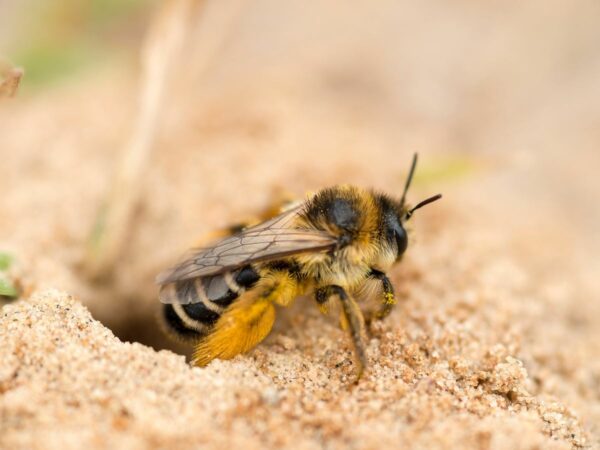Ground Bee Control Morristown, NJ
Ground Bee Control. Ground bees become active in early spring. These bees dig nests in the ground, often in bare patches of the lawn or garden. If you find mounds of soil, similar to anthills but with larger openings, these may be ground bee nests. Watch for bees flying low over the ground and entering their burrows. Here is some more information on Ground Bee Control in Morris County NJ and surrounding NJ areas.
What Are Ground Bees?
Ground-nesting bees include the digger bees (family Anthoporidae), sweat bees (family Halictidae), and mining bees (family Andrenidae). Females excavate a nest in dry soil, and mound the loose soil around the nest entrance. She provisions the nest with pollen and nectar for her offspring.
Ground bees are solitary bees. Each female digs and provisions her own burrow. However, it's not unusual to find dozens of ground bee nests in one area if conditions are suitable for nesting. Males may fly over the burrows, patrolling for potential mates.

 Do Ground Bees Sting?
Do Ground Bees Sting?
Female ground bees can sting, but rarely do. Ground bees are not aggressive. However, they will sting in defense if threatened. Males of some species may behave aggressively around nesting areas, but they lack a sting. Sweat bees do have a somewhat startling habit of landing on people to lap up the perspiration from their skin; this behavior is, in fact, why they are called sweat bees. Should you swat at a sweat bee when it lands on you, it may sting you in self-defense.
How to Identify Ground Bee Nests:
Bumblebees also nest in underground burrows, though they typically use abandoned rodent burrows rather than excavate a new one. However, bumblebees live in social colonies. Observe the nest from a safe distance. Do you see a single bee coming and going, or multiple bees entering the nest? Social bees like bumblebees will aggressively defend their nests, so make sure you identify them before you take any action.
Yellowjackets also nest in the ground, and like bumblebees, often move into old rodent burrows. Some solitary wasps are ground nesters, too. Make sure you know the differences between bees and wasps. Don't assume you have docile, ground bees.
